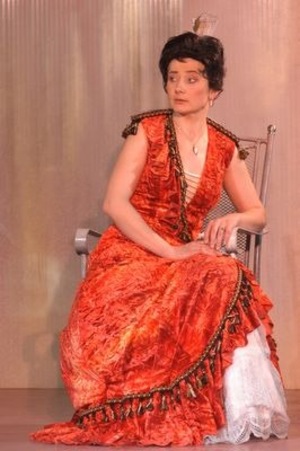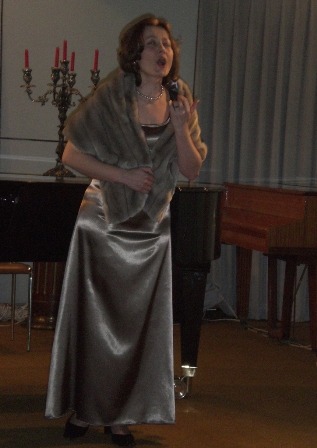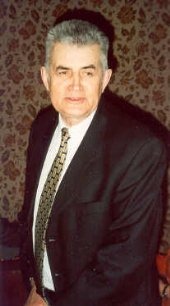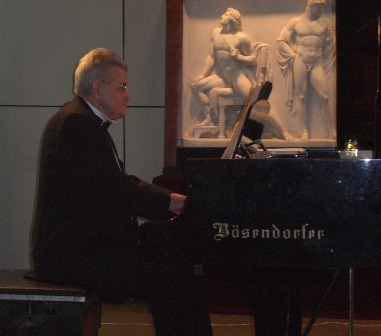QUOD LICET JOVI OR PECULIARITIES OF PERFORMANCE ART 0
Osvaldas Grinius
www.kamane.lt, 2007 01 31
A.Liutkutė
E.Ignatonis
In brief: A possibility to hear an unknown performer is always intriguing. A duet of not so well known performers – pianist Prof. Eugenijus Ignatonis and singer Aušra Liutkutė – presented themselves to Kaunas audience at M.Žilinskas Art Gallery on the sunny Sunday afternoon. Prof. E.Ignatonis is a long-year teacher and pro-rector of the Lithuanian Academy of Music and Theatre. He allocated much attention to the music of Aleksandr Skriabin in his career. Therefore, the music of the Russian composer prevailed during the Sunday concert.
Fortepiano miniatures and the seventh sonata called “The White Mass” sounded during the first part of the concert. The performer chose the programme which did not require too much virtuosity. The pianist concentrated on the harmony of music pieces leaving emotional and dynamic expression possibilities aside. He joined the miniatures into one large cycle. Such a method of performance justified and was interesting; however, the lack of brighter emotional accents made the music sound slightly boring.
When the first music piece performed by A.Liutkutė started sounding, the mystical aura of A.Skriabin music disappeared. The singer introduced herself by the light music of W.A.Mozart performing the aria of Susan from the opera “Figaro Wedding”. A.Liutkutė who is a winner of several competitions is better known in Vilnius. She is a trainee of the first graduates from the Opera Studio of the Lithuanian National Opera and Ballet Theatre. She is presently lecturing chamber singing at the Lithuanian Academy of Music and Theatre.
The soloist chose the programme of rather known music pieces in which virtuoso music decorated with coloratura figures dominated. In fact, coloratura passages suit the voice of A.Liutkutė well and do not require additional physical efforts. The singer proved to have a wide-ranged, light and flexible soprano in the expressive music pieces (Rozina’s cavatina from the opera of G.Rossini “Hairdresser of Seville”, L.Arditio “Waltz” (A Kiss), couplets of Oscar from the opera of G.Verdi “Mask Ball”, F.Schubert’s “Serenade”, etc.). The interpretations of A.Liutkutė were full of internal warmth, the emotional origin of music was not forgotten.
However, the accompaniment was not the best. As the wise Seneca stated, “Quod licet Jovi, non licet bovi” (lot. What is allowed to Jupiter, is not allowed to a bull). The work of E.Ignatonis may hardly be named as an accompaniment – the singer had to conciliate to the concertmaster and his numerous mistakes.
Thus, there were many contrasts in the concert of E.Ignatonis and A.Liutkutė organised by Kaunas Philharmonic which does not have its constant scene yet. Some impressions may serve as a lesson for future – all that shines like gold is not always gold, and the magic shortening Prof. does not always mean “professional”.




